Vol. 87, Iss. 2, February 2014
Accidental exposure to polychlorinated biphenyls (PCB) in waste cargo after heavy seas. Global waste transport as a source of PCB exposure
Riassunto
Objectives After cargo with PCB-containing transformer oil waste was damaged in heavy seas, the vessel crew exposed to PCB developed itching and acne-form eruption of the skin. The objective of our study was to analyse this work-related incident and its effects on health.
Methods Air and wipe test samples were taken in the ship for analysis of PCB (28/52/101/138/153/180); clinical investigations of all seafarers (n = 6) included lung function, chest X-ray, clinical chemistry and biomonitoring (plasma PCBs, chlorophenols in urine) measured after a latency of 7 weeks. The biomonitoring data were adjusted according to age-related reference values and validated against controls (n = 96).
Results Biomonitoring showed elevated PCB-28-/52/-102/-138 congeners (mean 1.16/0.91/136, ∑PCB: 5.82 μg/l), which correlates with the dust samples from the cargo hold (∑PCB. 9,440 mg/m2) and with 6.1 and 5.0 μg/m3 in stern and bow cargo air samples. IgE elevation in two seafarers and substantial blood sedimentation rate increase with anaemia or pulmonary emphysema were unlikely to be caused by PCB exposure. Although two members showed slightly elevated airway resistance values, other lung function parameters were normal and reactive airways dysfunction syndrome due to PCBs could be excluded. Elevated chlorophenols in urine could contribute to the manifestation of chloracne.
Conclusions PCB-52/-101/-138 found in plasma and in air samples confirm exposure to PCB. Acne-form skin eruptions were from occupational exposure to polychlorinated biphenyls in the spilt transformer oil. There were no other abnormal findings in medical and clinical examinations that could be attributed to PCBs. This does not exclude possible long-term effects.
Keywords
Accidental exposure, Chlorophenols, Clinical and laboratory diagnosis, Polychlorinated biphenyls (PCB), RADS (reactive airways dysfunction syndrome), SeafarersArticoli correlati che potrebbero interessarti
Fatal accidents and injuries among merchant seafarers worldwide
Occupational Medicine (Oxford Journals). Vol. 64, Iss. 4, June 2014



